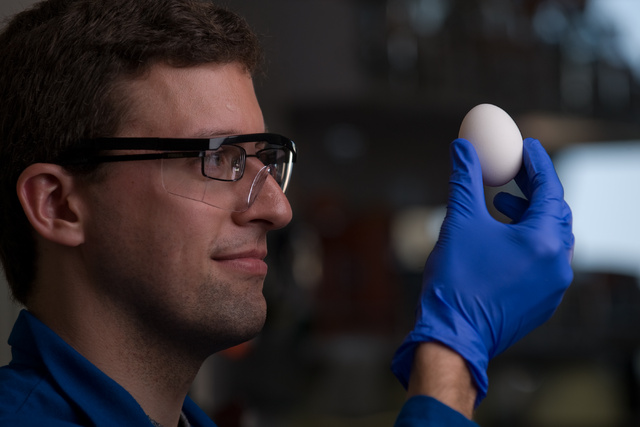University of California (Irvine) and Australian chemists have developed a technological method for unboiling egg whites.
Should their method prove applicable in the real world, it could drastically reduce costs for cancer treatments, food production, and other parts of the $160 billion global biotechnology industry.

“Yes, we have invented a way to unboil a hen egg,” said Gregory Weiss, UCI professor of chemistry and molecular biology & biochemistry. “In our paper, we describe a device for pulling apart tangled proteins and allowing them to refold. We start with egg whites boiled for 20 minutes at 90 degrees Celsius and return a key protein in the egg to working order.”
The problem researchers have run into in the past is being able efficiently produce or otherwise recycle molecular proteins that have multiple applications but frequently “misfold” into structurally incorrect shapes when formed, thereby rendering them useless.
“It's not so much that we're interested in processing the eggs; that's just demonstrating how powerful this process is,” Weiss explains. “The real problem is there are lots of cases of gummy proteins that you spend way too much time scraping off your test tubes, and you want some means of recovering that material.”
Present-day technology can perform dialysis at the molecular level over the course of about four days. This is, obviously, time consuming and expensive. The new process the team developed take just a few minutes. “It speeds things up by a factor of thousands,” Weiss notes.
To demonstrate the process, the team re-created a clear protein known as lysozyme which comes about when an egg has been boiled. Weiss and his team added a urea substance that chewed away at the egg white and liquefied the solid material. Next, they employed a vortex fluid device, a high-powered machine designed by Professor Colin Raston's laboratory at South Australia's Flinders University that applies stress within the thin, microfluidic films of protein bits and forces them back into their untangled, proper form.
“This method . . . could transform industrial and research production of proteins,” the researchers write in ChemBioChem, where their study was published.
One instance where this would prove applicable would be with cancer treatment. Presently, pharmaceutical companies create cancer antibodies in expensive hamster ovary cells because more often than not, they don’t misfold proteins. The method described in this article would give these companies the ability to quickly and cheaply re-form common proteins from yeast or E.coli bacteria instead, which, in turn, would make cancer treatment more affordable.
The group has filed a patent on the work, and the University’s Office of Technology Alliances is working with interested commercial partners.
Advertisement
Learn more about Electronic Products Magazine





